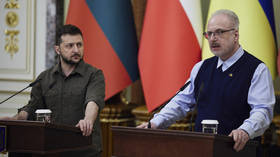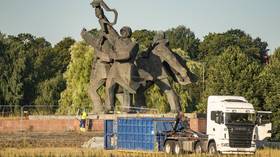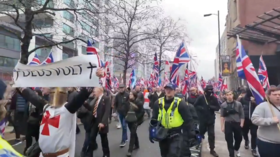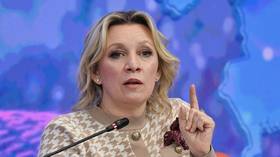Russians in Latvia should be 'isolated' – president

Ethnic Russians who are not loyal to the Latvian government should be “isolated from society,” the country’s President Egils Levits argued in a radio interview on Wednesday.
Discussing the positive and negative effects for Riga of the conflict in Ukraine, Levits called the emergence of “a section of Russian society that is not loyal to the state” a matter of concern.
“Our task is to deal with that [section] and isolate it from society,” he added, as cited by the Latvian public broadcaster LSM.
The positive effects that the president mentioned included the rise of patriotism and nationalism in the country and growing awareness of the price that has to be paid for freedom.
The Latvian government earlier decided to remove several Soviet-era monuments despite the objections of its ethnic Russian community. Some were moved to the Museum of Occupation – which is how the Latvian government perceives the time it was under Moscow’s control – while others were slated for scrapping.
According to Levits, Latvians have become more sensitive about such monuments since Russia attacked Ukraine in late February.
The Latvian president assessed that the situation in Ukraine proved that the Russian military was not as strong as some people had believed. He pledged that his country would continue providing assistance to Kiev.
People living in the Baltic state, as well as in other Western nations, are suffering from inflation and surging energy prices, Levits added, a state of affairs he called the cost of “defeating Russia.”













